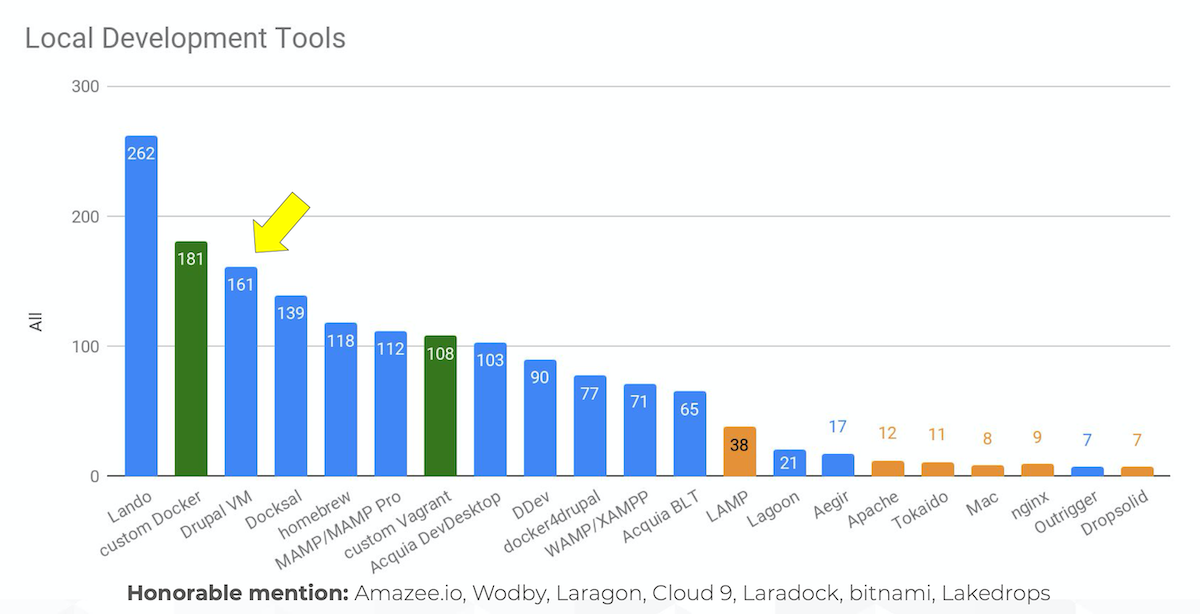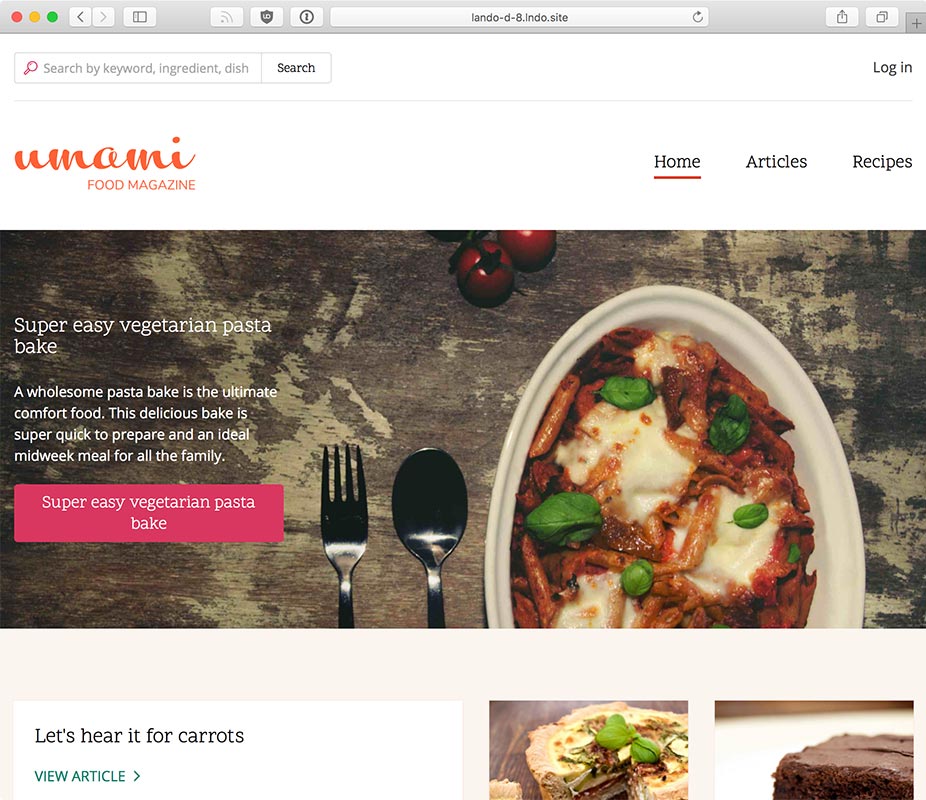2020 Drupal Local Development Survey Results
tl;dr: Video from CMS Philly presentation, Slides from the presentation, and scroll down to see graphs of particular interest to Drupal developers.
On May 1st, Chris Urban and I presented 2020 Developer Tool Survey Results at CMS Philly. For the past few years, we've run an annual Drupal Dev Tool Survey (2019, 2018) and presented the results at DrupalCon and some local Drupal Camps.
Since DrupalCon went virtual this year, and Chris was helping make CMS Philly virtual, he suggested I join him at that conference and reveal the results at this session.

